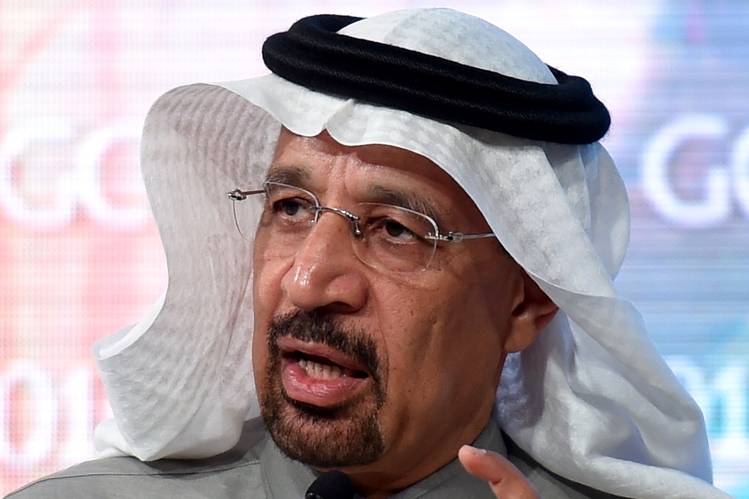(Bloomberg) — Saudi Arabia has no intention of using its oil wealth as a political tool in the controversy over the killing of journalist Jamal Khashoggi, and the kingdom plans to boost crude output again soon.
“For decades we used our oil policy as a responsible economic tool and isolated it from politics,” Energy Minister Khalid Al-Falih said in an interview with Russia’s TASS news agency published on Monday. “So let’s hope that the world would deal with the political crisis, including the one with a Saudi citizen in Turkey, with wisdom,” he said.
Falih’s comments come just days after Saudi Arabia said Khashoggi, a critic of Crown Prince Mohammed bin Salman, was killed in the country’s consulate in Istanbul. While the official report won praise from U.S. President Donald Trump, many politicians and leaders in America and Europe questioned the official explanation that he was accidentally killed in an altercation. That contradicts details leaked by Turkish officials saying the journalist was murdered.
The incident has damaged the kingdom’s image as a future investment hub, with global business leaders from Goldman Sachs Group Inc. to Uber Technologies Inc. distancing themselves from Prince Mohammed and scrapping plans to attend his business forum this week.
Production Promise
Last week, Saudi Arabia vowed to retaliate against any punitive measures linked to Khashoggi’s fate, fueling concerns of oil price hikes. Al-Falih said there’s no intention of repeating the 1973 oil embargo, in which the kingdom and several regional allies squeezed supplies to the U.S. and Europe in retaliation for their support for Israel.
Saudi Arabia is ready to raise its output to 11 million barrels a day “in the near future” and has the ability to lift production as high as 12 million barrels a day if the market requires it, Al-Falih said. The world needs to show its appreciation of the efforts and multi-billion dollar Saudi investment that made this possible, he added.
There are limits to the kingdom’s ability to respond, Al-Falih said. If the supply gap created by disruption in Libya, Nigeria, Venezuela — as well as U.S. sanctions against Iran — were to grow as large as 3 million barrels a day, Saudi Arabia would need to tap its oil reserves, he said.
Joint work between the Organization of Petroleum Exporting Countries and non-OPEC oil producers needs to continue on a long-term basis, Al-Falih said. He expects the cooperation agreement, initially signed in late 2016, to be extended in December, at a meeting in Vienna. The deal “will allow us to intervene to rebalance the market in any appropriate time from January onward”, he said.
After agreeing in late 2016 to cut production to eliminate a supply glut and boost prices, many OPEC members and allies including Russia are now increasing output to offset disruptions in Venezuela and Iran. It’s still too early to say what strategy the group will adopt in 2019 given current uncertainties, said Al-Falih.
“If the supply is too long, we should be able to cut,” Al-Falih said. “If supply is short, we have to be able to respond.”



